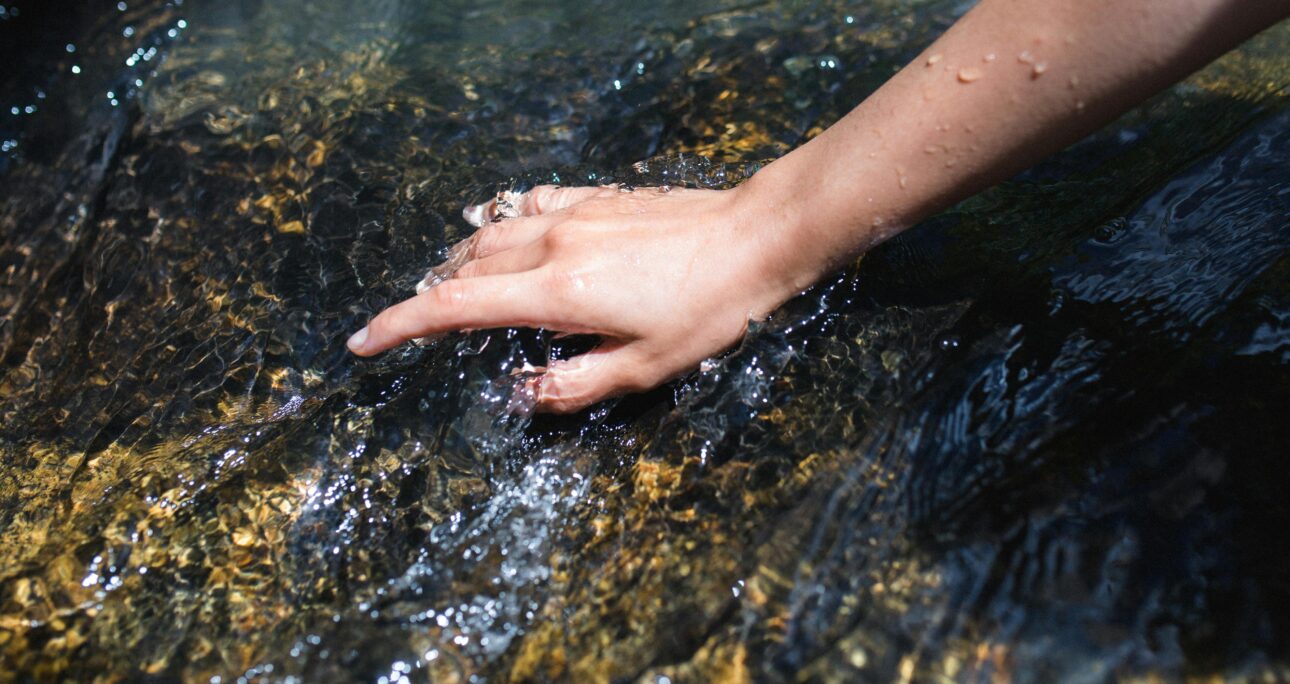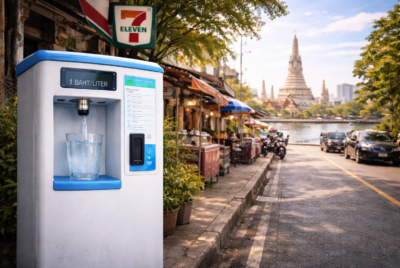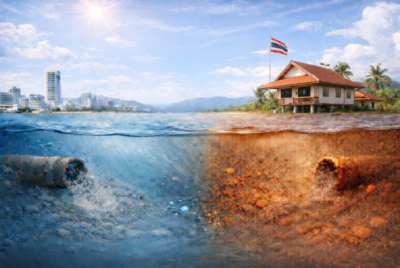For the general audience, hard water might sound funny, or be associated with something that water can never do. It’s called hard water due to the difficulty it creates when completing tasks like cleaning. But jokes aside, for many homes, it’s the source of some pretty frustrating problems that will be covered in this blog.
Ever seen white streaks on your dishes or buildup on your showerhead? Well, those are signs of hard water in the shower and kitchen. These are only some of the ways you can tell you have hard water.
Aside from getting your water tested, there are 5 main signs of hard water. In this blog, I’ll tell you how to find out if you have hard water, what hard water is in general, and what you can do to avoid its negative effects.
What is hard water?
Before jumping to how we can tell if you have hard water, let me explain what hard water is. Water almost never comes in H2O form, it is combined with different chemical compounds that make our water taste different in each region. When the concentration of these metals, namely calcium and magnesium, is high in the water, you have hard water.
As water goes through a natural filtration process through springs or just underground, if the rocks that are having contact with this water are mineral rich, it sort of collects some of them on their journey to the bottom reservoirs.
Unlike many chemicals, water doesn’t always have an immediate effect on the body. It’s more like a vesting schedule: over time, as you continue drinking water with excess minerals, your body gradually accumulates them. Although, direct contact with your skin or hair or appliances may impose a rather direct impact.
Think of hard water like a guest who leaves a little bit of a mess wherever they go. Hard water can:
- Clog your pipes
- Leave residue on surfaces
- Ruin your appliances
- Damage your laundry
- Harm the quality of your hair and skin
- And many more.
5 signs of hard water in your home
Knowing how to spot the signs of hard water on your hair, skin, kitchen, and shower is the first step to finding a solution for it. I’ve compiled 5 simple signs you can check for when looking for signs of hard water in your home.
1. Dry skin and hair problems
Have you ever stepped out of the shower and felt like your skin is drier than before? Tight and itchy skin after a shower is one of the most common hard water skin symptoms.
The minerals in hard water don’t rinse off your body completely, which leaves a residue that takes the moisture of your skin away. Unfortunately, the symptoms of hard water on your skin are accompanied by damage to your hair as well.
If your hair feels rough, looks dull, or breaks easily, it can potentially be a sign that you have hard water. The minerals can build up on the strands of your hair, making them less soft and shiny.
2. Spots and streaks on dishes
Hard water loves to leave its mark, especially on your newly washed dishes. If your dishes constantly have spots, streaks, or even that cloudy film on your glasses, you’re most probably seeing one of the clearest signs of hard water.
Scrubbing and rinsing are powerless in the fight against white stains on your dishes because even after a dishwasher cycle, the minerals in the water still stick around. It’s annoying, and it’s a good idea to get your water tested for hardness.
3. Problems with appliances
When hard water isn’t leaving visible signs, it’s most probably working behind the scenes to cause trouble. Over time, minerals can build up in the pipes of your appliances and ruin your dishwasher, washing machine, water heater, and more.
I’ve seen it happen – your water heater suddenly takes longer to do its job or your dishwasher stops cleaning as well as it used to. Save your appliances and start asking, “How do I find out if I have hard water?”
4. Stiff laundry and dingy whites
The water in your home leaves its impact on basically everything it touches. So, if you notice your clothes feeling stiff and scratchy even after using fabric softener, you should take note.
Your bright white clothes might start looking a bit gray or generate a yellow tine if you ignore these signs of hard water.
But why does this happen? Well, hard water makes detergents and other soaps less effective. As a result, your clothes don’t get properly cleaned. Not only is it frustrating but it can also shorten the life of your favorite sweater.
5. Low water pressure or scale buildup
Your faucets or showerhead have weak water flow – yet another sign of hard water in your home. Hard water creates mineral deposits or limescale (white chalk-like mineral deposits) that clogs your pipes and fixtures over long periods of time. You can recognize this by white or green crust around your faucets. Let’s admit it, it’s not visually appealing nor does it look clean.
What can you do about hard water?
Now that you know the answer to “How do I know if I have hard water,” let’s talk about what you can do about it. The good news is that you don’t have to live with it.
If you’ve noticed any of the signs of hard water above, your best bet is to install a water softener, which eliminates all of the problems mentioned above. There are many technologies that solve this problem besides a softner such as descaling, nanofiltration, FMD, chelation, and more.
These systems all get the job done whether its by completely removing the hardness or solving the deposit problem. Some require more maintenance than others but eventually , you’ll enjoy softer skin, silkier hair, and longer lifespans for your appliances.
Get in touch for a consultation or consult your local water filtration expert.
Conclusion
Hard water can seem like a small inconvenience at first, but it still affects your appliances, skin, hair, and more. Knowing the signs of hard water can help you start fighting against its negative effects.
From streaky dishes to fading laundry, the signs of hard water aren’t hard to miss once you know what to look for. The good news is that you don’t have to face these issues alone.
If you notice any of the signs I discussed in this blog, you can start taking action and enjoy the benefits of softer water. Whether it’s through a water softener or hard water cleaning supplies, your home deserves nothing less.





